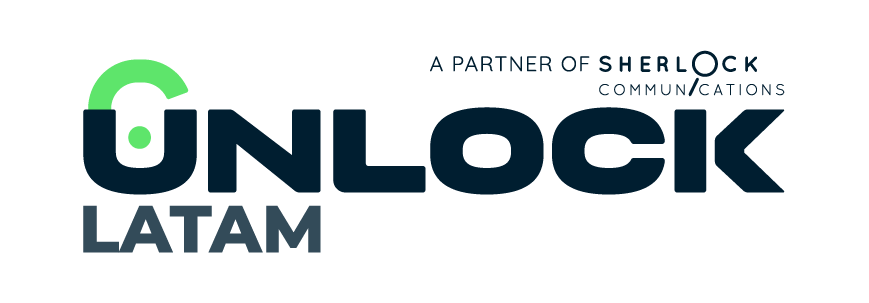What is content marketing and how to use it effectively
We hear about content marketing everywhere and it seems to be the key that opens endless opportunities. But, in the B2B business, this exciting inbound marketing technique can be one of your best allies or your worst enemy if you do not plan and implement it consistently and professionally.
Content marketing is a type of inbound marketing that engages customers and builds loyalty, making it effective for customer retention. Is a cover letter in which you should not make mistakes, especially in those materials that speak directly about your brand and your service.
Therefore, let’s review some keys to a good first impression and what are the steps to develop a content marketing strategy that positions you at the top of the minds of your potential clients.
What is content marketing
Content marketing lead generation is a long-term strategy strategic marketing approach focused on creating and distributing interesting, valuable, relevant and consistent content to attract and retain a specific audience and generate leads
Any successful lead generation program, even when backed by the most advanced marketing technologies, can be ineffective if its content strategy doesn’t align with the buyer’s needs and feeds into their entire buying journey.
Instead of directly pitching products or services, content marketing aims to provide useful information, educate, or solve problems for a target audience. It’s important to have good storytelling to share because the ultimate goal is to build a relationship of trust and credibility with the customers and prospects.
Why is a content marketing strategy important?
Marketing today is impossible without great content. Like never before, people and companies today look for information in the most diverse media and devices. To learn, to be entertained, to make decisions, to buy, to sell, for everything. You can’t not be where people and companies are looking if you want to reach them.
Content should be integrated into your marketing process and prospecting tools and strategies, not treated as something separate.
This content can take various forms such as articles, blog posts, videos, infographics, podcasts, social media posts, eBooks, whitepapers, and more. Quality content is part of all forms of marketing, including:
- Email marketing: consistently great content trains your audience to anticipate, open and read emails from your brand.
- Social media marketing: content marketing strategy comes before your social media strategy.
- SEO: search engines reward businesses that publish quality, consistent content.
- PR: successful PR strategies should address issues readers care about, not their business.
- PPC: for PPC to work, you need great content behind it.
- Inbound marketing: content is critical to driving inbound traffic and leads.
- Digital marketing: content marketing forms the foundation for an improved or rebooted integrated digital marketing strategy.
- Content strategy: content strategy (which determines how content is created and managed throughout an organization) must be considered in any content marketing approach.
Key elements of content marketing strategy
- Valuable content creation: produce content that is informative, entertaining, or educational and aligns with the interests and needs of the target audience. Providing experiences that are genuinely beneficial to the customers and prospects position a brand as a trusted resource within its industry.
- Consistency, quality, and regularity: consistently delivering high-quality content that maintains relevance and usefulness over time. Regularly publishing valuable content helps build an engaged audience and reinforces brand authority.
- Audience-centric approach: understanding the audience’s preferences, pain points, and behaviors to create content that resonates with them. Content is tailored to address specific stages of the buyer’s journey, from awareness to consideration to decision-making.
- Distribution and promotion: production is only one part of the job. You must ensure the content reaches the intended audience through various channels such as social media, email marketing, search engine optimization (SEO), influencer collaborations, and partnerships with relevant platforms.
- Building relationships: engaging with the audience through comments, discussions, and interactions to foster relationships and encourage brand loyalty. Responding to queries and feedback helps in establishing trust and credibility.
- Data-driven actions: measuring and optimizing is the key to success. Tracking metrics like website traffic, engagement, conversions, and customer feedback to assess the performance of content marketing efforts. Analyzing these metrics helps in refining strategies for better results.
Modern content marketing: the new challenges
We know that marketing is permanent innovation. Nobody can fall asleep. Modern content marketing is undoubtedly a driver of growth but it must adapt to changes permanently.
Traditional content marketing often revolves around SEO and keyword rankings. But today, modern content marketing shifts the spotlight to your audience. It’s about understanding their needs, desires, concerns, and pain points.
By conducting dynamic research, you can explore what content resonates with your audience. Tools like BuzzSumo and Similarweb are invaluable for tracking trends and topics in your niche.
But really, is this “Modern Content Marketing”? Content, whether it’s video or text or audio or images, should always be user-centric. If we are not creating content for users then why are we writing content. If it doesn’t resonate with people, what’s the purpose?
Content creators should always be listening, understanding and crafting content that resonates with people. In an era where ChatGPT churns out masses of content, focusing on the user is our anchor. It’s the only way forward in the attention economy.
Mastering Outbound Sales: Strategies for Predictable Revenue Growth
Mastering Outbound Sales: Strategies for Predictable Revenue Growth Nobody said it better than Aaron Ross, author of Predictable Revenue: “You want growth that doesn’t require guessing, hope, and frantic last-minute...
The Role of Sales Development Representatives (SDRs) in Predictable Revenue
The Role of Sales Development Representatives (SDRs) in Predictable Revenue Sales Development Representatives (SDRs) play a crucial role in the implementation of the "Predictable Revenue" framework, initially conceptualized by Aaron...
B2B prospecting: finding high-quality leads
B2B prospecting: finding high-quality leads Although there are very common concepts among those of us who work in different areas of marketing, more than once we take for granted that...



